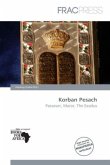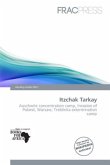Please note that the content of this book primarily consists of articles available from Wikipedia or other free sources online. There is a wide range of uses for kbd as a among the Semitic languages. It can be used literally to denote the organ of the "", or more figuratively to refer to the "interior of the body", which in Semitic is seen as being "the seat of human will and ." Therefore, in Akkadian, an East Semitic language which uses the kbt root instead, kabattu is used to denote the realm of "violent emotions" and "blind passions". According to Wolfgang Heimpel in Letters to the King of Mari, the root kbt was vocalized as kbd in , and an adjectival derivation of the root appears in Mari inscriptions that record royal correspondences. Heimpel translated its meaning as "heavy", as in the following exceprt: "The troops are well. The tablets are heavy for the messengers whom Ibal-Pi-El is sending, and so my mail to you is not regular."








